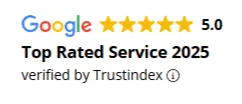Navigating a Child Custody Dispute? Our Family Law Attorneys Are Here to Guide You Through It
At the Law Office of Matthew W. Peterson, we understand that matters involving child custody and visitation can be emotionally taxing and legally complex. With offices located in both Boston and Salem, our team of experienced family law attorneys is committed to helping parents across Eastern Massachusetts understand their rights, responsibilities, and options when facing custody matters. Whether you’re in Suffolk County—such as Boston, Brighton, Dorchester, West Roxbury, or Chelsea—or in Essex County, including Salem, Lynn, Swampscott, Peabody, or Saugus, our trusted legal team is ready to assist you in protecting your child’s best interests.

Understanding Child Custody and Visitation in Massachusetts
In Massachusetts, the legal framework governing child custody and visitation is centered around the best interests of the child, as outlined in Massachusetts General Laws Chapter 208, Section 31. There are two primary types of custody:
- Legal Custody: The right to make important decisions about a child’s education, medical care, and overall welfare.
- Physical Custody: Determines where the child lives and who takes care of their daily needs.
Parents may share joint custody, or one parent may be awarded sole custody, depending on the child’s needs and family circumstances. Visitation, now often referred to as parenting time, outlines the schedule the non-custodial parent follows to maintain a relationship with their child.
Our law firm focuses on guiding parents through this process with clear communication, informed decision-making, and a deep understanding of Massachusetts custody laws.
What Factors Influence Custody Decisions?
The Massachusetts courts prioritize the best interests of the child when deciding custody arrangements. Some of the most common factors considered include:
- The child’s age and developmental needs
- The parents’ ability to provide a stable home environment
- Each parent’s involvement in the child’s life
- The child’s relationship with each parent
- History of abuse or domestic violence
- The child’s preference, depending on their age and maturity
We believe in creating custody solutions that promote healthy relationships between children and both parents whenever possible. Our experienced Massachusetts divorce attorneys work diligently to build custody arrangements tailored to each family’s unique needs.
Developing Parenting Plans That Work
When determining child custody and visitation, parents are often required to develop a Parenting Plan, which outlines how they will share responsibilities and time with the child. A strong parenting plan will address:
- Weekday and weekend schedules
- Holidays, school vacations, and birthdays
- Communication between parents
- Transportation logistics
- Guidelines for resolving future disputes
A clear and comprehensive plan reduces misunderstandings and can prevent future legal conflicts. If you and your co-parent are unable to agree on terms, our team can help advocate for a fair resolution in court.
Helping Families in Suffolk and Essex County
Whether you’re a parent in Chelsea, West Roxbury, or Swampscott, navigating custody arrangements without proper guidance can lead to stress and confusion. At our law offices in Boston and Salem, we represent clients across Eastern Massachusetts, advocating for their parental rights while promoting the child’s well-being.
Our team understands the nuances of Massachusetts family law and can guide you through each step of the process, from filing initial motions to finalizing custody agreements. We also assist clients with modifications and enforcement of existing orders when family dynamics change.
Modifying Custody or Visitation Orders
Circumstances change over time. A job relocation, changes in the child’s school needs, or concerns over safety may justify a modification of a custody or visitation order. Under Massachusetts law, a parent can request a change if they demonstrate that:
- The situation has changed in a significant and meaningful way.
- The change is in the child’s best interests.
Our team assists clients in filing for modifications or defending against changes that are not in the child’s favor. We ensure that your position is well-documented and supported with evidence.
Why Work With a Trusted Divorce Attorney on Custody Issues?
Child custody is often the most sensitive aspect of any divorce or separation. Working with a trusted divorce attorney helps ensure that your parental rights are protected and that your child’s needs are prioritized. Our attorneys have years of experience in family law, offering guidance that is both compassionate and strategic. We are not here to escalate conflict. Instead, we work to find practical, legally sound solutions that serve your family’s long-term interests.
Talk to a Massachusetts Divorce Attorney Today
Navigating child custody and visitation issues can feel overwhelming, but you don’t have to go through it alone. Our law firm guides families in Boston, Salem, and surrounding communities in Suffolk, Essex, Middlesex, and Norfolk Counties. We are committed to clear communication, honest advice, and assertive legal representation.
At the Law Office of Matthew W. Peterson, we take your case personally. Whether you’re at the beginning of a separation or seeking to modify an existing custody agreement, our attorneys are here to help. Contact us today to schedule a strategy session and take the first step toward a resolution that prioritizes your child’s well-being.
Frequently Asked Questions
What is the difference between physical and legal custody in Massachusetts?
Legal custody refers to decision-making rights, while physical custody determines where the child lives. Parents can share either or both types of custody.
Can a child choose which parent to live with in Massachusetts?
Massachusetts courts may consider a child’s preference, but the final decision is based on what is in the child’s best interests, not solely on the child’s wishes.
How can I modify a custody order in Massachusetts?
To modify an existing custody order, you must prove that there has been a significant change in circumstances and that the proposed change benefits the child.
What happens if my co-parent violates our visitation schedule?
You can request enforcement through the court. The court may modify the order or take additional action to ensure compliance.
Is joint custody always granted in Massachusetts?
Not necessarily. The court decides custody based on the child’s best interests. In cases involving abuse or lack of cooperation, sole custody may be awarded.



